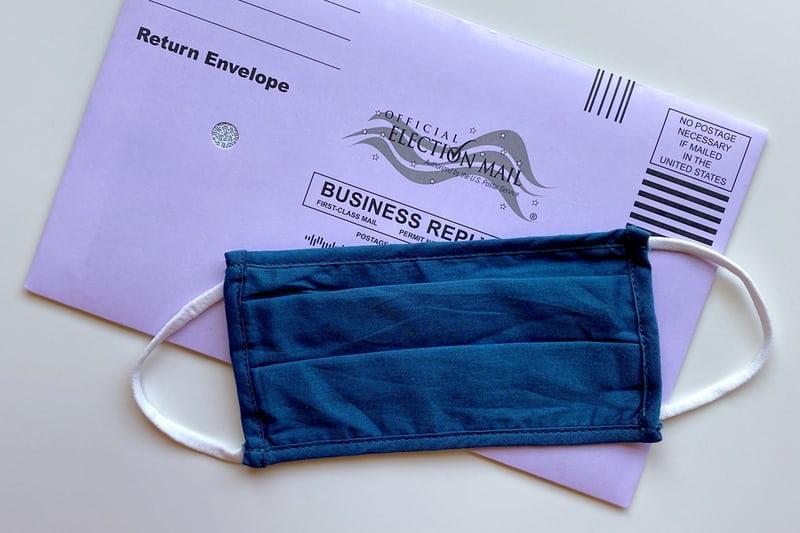If you were to go back in time a year and tell yourself about 2020, you might not believe it. We’ve seen a year of facing situations none of us could have prepared for, and most of us have found ourselves in polarized and volatile environments, whether online or in real life. The stressors of social justice concerns, global pandemics and most recently, the presidential election, are getting to many Americans.
We’re going to focus specifically on election anxiety. Maybe it’s losing sleep due to watching the news until late hours, or social stress reading comments of family members fighting on Facebook. Or you’re facing immense anxiety about the results swaying one way or another. However it’s panning out in your life, the election has been a stressor for most of us and that can get in the way of sleep, mental health, social relationships and even physical health.
What we didn’t want to do is give you a one-size-fits-all approach to stress relief. Putting some lavender on your pillow, taking a walk and meditating are great tools. But we want to go to the source of that stress and what’s made election anxiety unique in 2020: our technology. And that’s because the amount of time we spend on our devices has skyrocketed since March of this year. Daily Instagram usage was up 40%, and TikTok a whopping 300%. So here are three tips surrounding how we use our devices and take in information about the election to help you combat election anxiety and protect your mental health.
1. Think like a stoic when digesting information from your device.
Stoicism is an ancient philosophy that’s long been attributed to philosopher Marcus Aurelius. And to this day, it still has applications to modern life. Roughly, it’s the idea that things are going to happen to us, whether they be good or bad. We can’t control that. But what we can control is how (or if) we react to those things, and that is what shapes our current reality.
This method of thinking helps remain firmly rooted when adversity, stress and conflict threaten to knock us down. And this can be applied to the stress and anxiety that come along with the election.
Have you voted yet? If so, great. That’s quite literally the only thing you can do to have control of the situation. You can spread the word or donate to your favorite candidate’s campaign, but ultimately the only vote you control is your own. So once you have voted, that’s where stoicism comes in. You can’t control what comes after that. So no matter what news notification pops up on your phone, or a turbulent argument thread you find on Twitter, you can’t control the outcome anymore. So you simply let it be. Don’t allow yourself to react anymore, because you’ve done what you can and the rest is out of your control. And for that reason, it’s not worth sacrificing your peace and mental health.
2. Take some pointers from the Good Phone movement and optimize your smartphone for your mental well being.
Doug Clinton describes the Good Phone as “a minimalist smartphone designed to break the cycle of tech addiction.” Adopting the full plan can be a little much for the average person, as it involves deleting all social media, news apps, games, a browser, and even email. But ideas from the Good Phone can be helpful in the short term around the election to make your tech work for your mental health, not against it.
Step one is to recognize your triggers that are causing election anxiety. Let’s say they are your go-to news app, Twitter, and Facebook. Try putting both CNN and Twitter in a folder together, and placing that folder on the very last page of your home screen with the apps you rarely use. That way, you’re giving yourself more steps to get there, making it more difficult and less likely you’ll open them out of instinct. Better yet, log out of Twitter to add even one more step. And as for Facebook, try deleting the app altogether, which is an idea from the Good Phone. You can log in on your laptop when you need to, but it’s less available to you when you remove that trigger from your home screen.
3. Reframe your small talk.
This is a behavior that might be taking a toll on your mental state more than you realize. When you’re catching up with an old friend on the phone, what is it we talk about? These days, it’s coronavirus and the election. And this makes sense, given this is all we hear about in the media and what’s constantly on our minds. But when these conversations have a negative or stressful undertone, how does that affect the rest of your day? It’s bringing back those stressors all over again.
What if you changed that instinct and talked about the good things happening in life? What if you started a streak of how many days you can go without mentioning the election in conversation? Our instinct is loss aversion – so once the streak is in place we’ll work toward keeping it. Mark a check mark in your planner each day you’re successful and keep track. You’ll likely see a shift in your energy and that of those around you.
